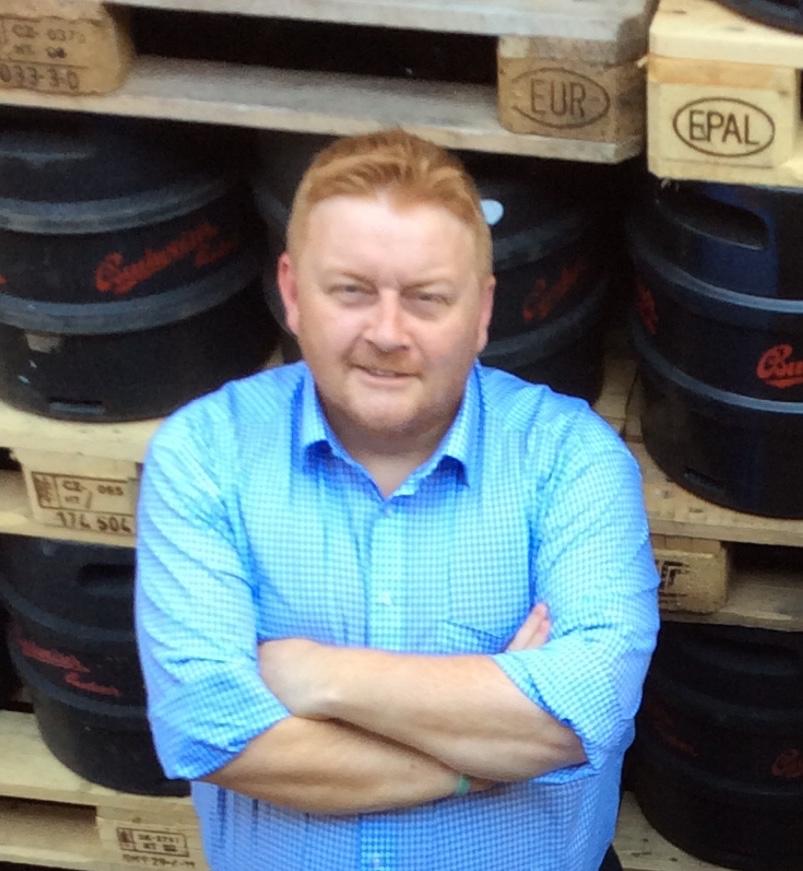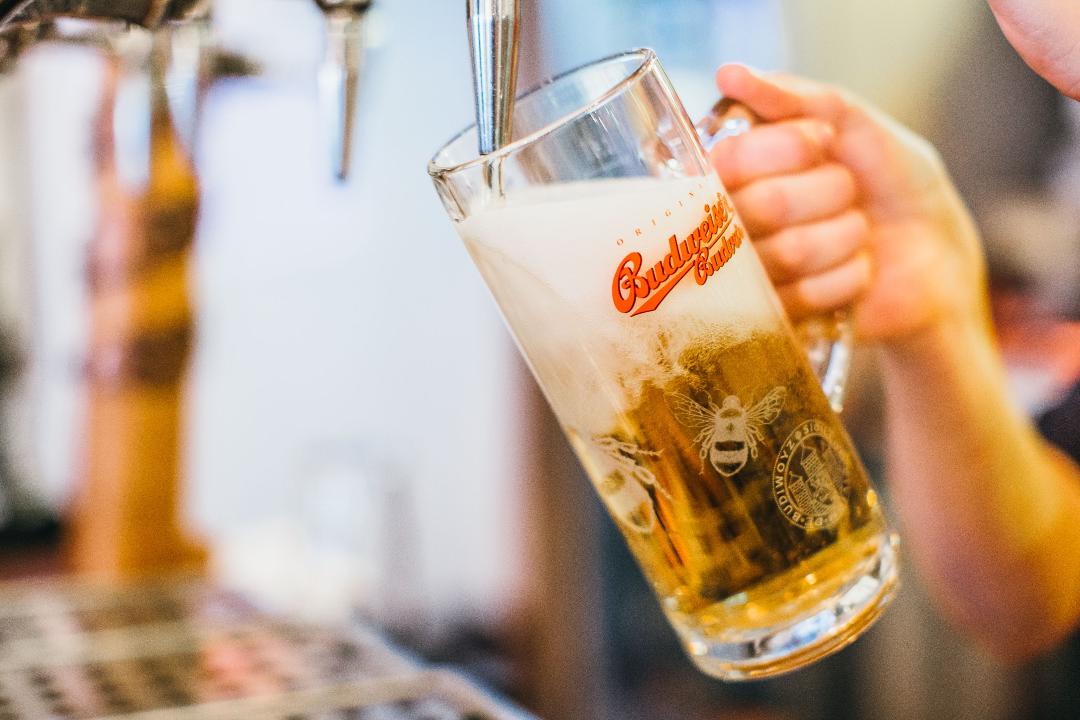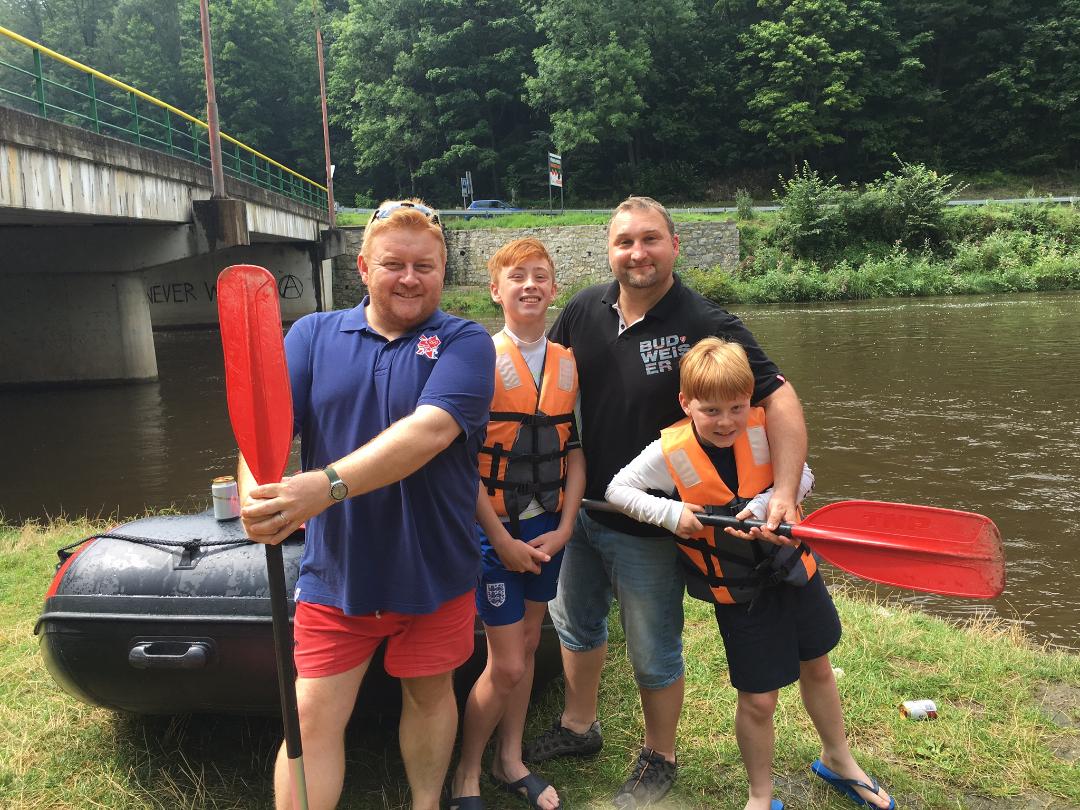How did you end up with Budweiser Budvar UK?
After I got my Master’s degree, I spent some years in London in a consultancy environment. I found it quite theoretical, so started looking for something more dynamic and practical. My steps led to Bass Brewers, the UK’s second largest brewery, then I went to the wine industry, and later to Magners, a very famous cider brand. After five years, I was approached by Budweiser Budvar - now I’m in my 5th year and I’ve thoroughly enjoyed it. It’s a fantastic business and I really love working with the Czechs who I feel have cultural similarities to the Brits, including a perspective on the world as well as sense of humour.
Do you focus only on the UK?
Budweiser Budvar UK is a daughter company of Budweiser Budvar National Corporation in České Budějovice. It’s one of three daughter companies (the other two are in Germany and Slovakia) and the rest of the world works through relationships with distributors. I run the UK arm and we focus on both on-trade (consumption on premises, i.e. restaurants) and off-trade (consumption off premises, i.e. supermarkets, etc.) Our team is small but very agile and flexible so we can make decisions quickly; our customers often say they like to work with us because we’re fast, honest and open. I also admire the way my Czech colleagues think and look at the long term rather than try to brew beer simply in the cheapest way.
What are Budweiser Budvar’s aspirations in the UK?
Budvar in the UK sits within the super-premium category (above standard lager and premium lager), to use the industry terminology. It’s a beer with authenticity; there is a story behind it and it’s only brewed in the Czech Republic which sets it up apart from other beers sold in the UK. The maturation of Czech lager is very high but it is even higher in Budvar and we mature our lager over two to three times longer than any of our main competitors. This maturation creates a really wonderful product but it is probably one of the most expensive beers to make because of the maturation time. This aspect naturally limits your impact, where you want your beer to be, and the extent to which it will be consumed.
However, we are proud of our growth of 20% in the last two years; we are 50% bigger in the UK than Pilsner Urquell, which is the leading brand in the home market. I find it interesting that still, not many people including the Czechs realise that it is owned by the Czech people themselves.

What’s your market share?
Very modest: less than 1%. Competition is challenging. The UK beer market declined by 36% since the turn of the century as people are drinking beer less but they drink better. So there is a real opportunity for brands like Budweiser Budvar, and other Czech beers for that matter. We are now trying to establish cooperation with small breweries in the UK and the Czech Republic; our aim is to celebrate ‘Czechness’, to help support a Czech image abroad.
Trends show that people look for quality; they’re interested in how and where products are made. They are turning away from mass producers. According to UK statistics, standard strength mainstream lager is declining, including some very big brands. So Czech beer as well as other imported craft beer are growing significantly. This clearly demonstrates that UK consumers are looking for something different and better, something with a story.
How does a traditional company innovate?
We focus on innovative marketing - take a look at www.czechstories.com - and we’re trying to bring broader stories from Bohemia to the UK market, and introduce UK consumers to, for example, Czech food such as koláče and goulash. We want to broaden UK beer consumer’s awareness of the Czech Republic beyond stag dos in Prague - Czech culture has millions of other things to offer and our job is to try to tell that story which consumers really respond to. We've won awards for this campaign and some of our social media engagement scores are industry-beating. In addition, we’ve teamed up with Bolt motorcycles in London – we are restoring a Czech Jawa bike which will be used for a ride through some of the European beer capitals all the way to České Budějovice. As a result, we’ve had a very positive initial reaction from the trade as we are doing something different to other beer companies who only try to sell.
We have also innovated by investing heavily in Tankové Pivo, bringing tank beer directly from our cellars in Budějovice to 12 bars across the UK. This has really helped UK customers experience the real quality of Czech beer as if they were in brewery cellars.
Are there still disputes around the brand name?
 They’re market specific so to some extent, they’re never finished. We have issues still in a couple of markets. In terms of a name, we tend to have support in Europe while the Americans win in the North American market. At its heart though, it’s a story about David and Goliath - our brewery globally brews around 1.6 million hectolitres per annum vs. our US competitor with over 400 million hectolitres. I understand that the UK and Iceland are the only two markets where both brands can use the brand name, which presents challenges. That’s why we’re telling Czech stories to get across where the beer is made. The US Budweiser in the UK is made in Wales, and not even imported from the US, ironically 5 miles from where I live. And our Budweiser Budvar sold in the UK is made in České Budějovice as well as Budvar sold in Africa, Japan and elsewhere.
They’re market specific so to some extent, they’re never finished. We have issues still in a couple of markets. In terms of a name, we tend to have support in Europe while the Americans win in the North American market. At its heart though, it’s a story about David and Goliath - our brewery globally brews around 1.6 million hectolitres per annum vs. our US competitor with over 400 million hectolitres. I understand that the UK and Iceland are the only two markets where both brands can use the brand name, which presents challenges. That’s why we’re telling Czech stories to get across where the beer is made. The US Budweiser in the UK is made in Wales, and not even imported from the US, ironically 5 miles from where I live. And our Budweiser Budvar sold in the UK is made in České Budějovice as well as Budvar sold in Africa, Japan and elsewhere.
How many countries is Budweiser Budvar in?
Budweiser Budvar is exported to over 70 countries and the strongest markets are Germany, Slovakia, the UK, Poland and Austria. But let’s put things into perspective: beer consumption in the Czech Republic is 145 litres per person per year and in the UK it’s around 60 litres per person per year. You can see how important beer is in the Czech market but the markets keep changing - beer consumption in the UK and Czech Republic for example is in decline as wine and spirits become more appealing to consumers.
What’s your favourite beer and what do you do in your spare time?
 My favourite beer is our Czech Imperial Fresh Hopped lager, available only once a year following each harvest.
My favourite beer is our Czech Imperial Fresh Hopped lager, available only once a year following each harvest.
Having two sons, I spend most of my spare time with them, and as is typical for us Welsh, it’s all about rugby! A lot of my time is spent watching my sons or helping with coaching, although at 46 I don’t play rugby anymore!
How would you define yourself in 3 words?
Honest, hard-working, happy.
Last word?
Years ago I came across the work of Jim Collins and his theory about companies that manage to move from good to great. One of his key principles that I’ve learned is “First who, then what” i.e. before you decide what you do, you need to determine if you’ve got the right people to do it. In Budvar, it was critical for us to form the right team, and that was fundamental to getting the brand back into growth. Our people are motivated and passionate about the brand, they want to go out there and get this right. There is a great feeling in the company and that’s very reassuring about the future. We love the beer, love the company, and we try to keep it simple.
By Tereza Urbankova, member of the Executive Committee
We are looking for more CBCC members to be interviewed! Please email terezaurbankova@yahoo.com if you are interested.